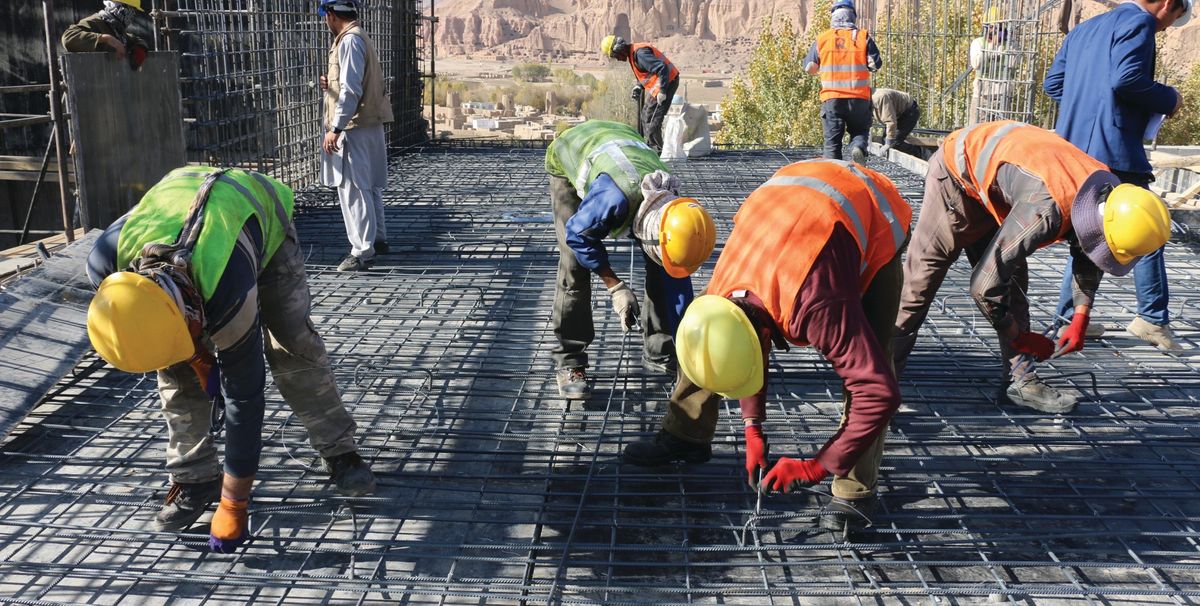A cultural centre at the Unesco World Heritage site in Afghanistan where the Taliban destroyed the Bamiyan Buddhas is due to open to the public in summer 2018. Construction began in September on the 2,450 sq. m building by the Argentinian firm M2R Arquitectos, which beat more than 1,000 other entrants in an international design competition. Formed by a “system of negative spaces” carved into the ground, the complex will house two galleries dedicated to Afghan archaeology, a performance hall and a tea-house. The South Korean government is funding the $2.5m project, while the Afghan ministry of urban development and housing has pledged $1.5m to create a garden.
Unesco experts are still debating the controversial plan to rebuild the pair of rock-cut Buddha statues demolished by the Taliban in 2001. The Bamiyan working group met in Munich in December to discuss the “urgent conservation” of the ancient site, particularly the fragile western niche. The group’s last meeting in 2013 revealed that German archaeologists had partially rebuilt the eastern Buddha’s feet and legs without authorisation from Unesco, which opposed reconstruction in 2011. The Afghan government continues to back the reconstruction of at least one of the statues. Unesco is expected to make its final recommendations in October.


